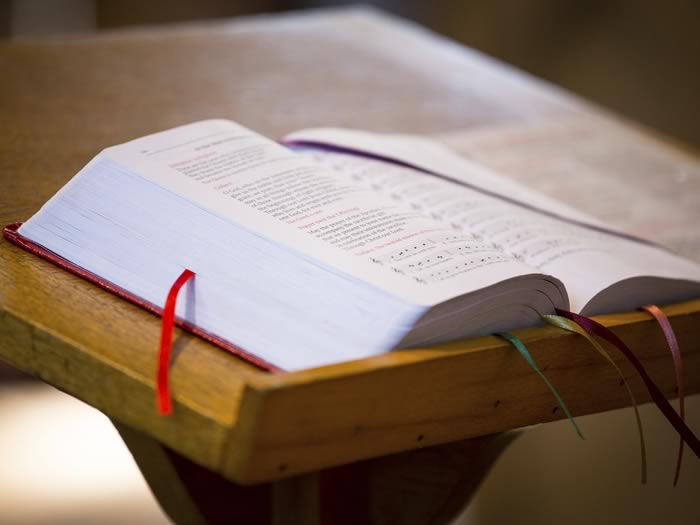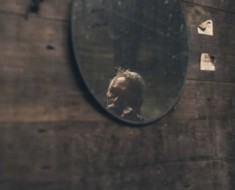The suggestion has been made that some of my sermons could be posted as blogs on the euroresidentes.com website. Surprised, unconvinced, but slightly flattered by this, I have agreed to post some of my preaching efforts over the next few months. The sermons were prepared for a specific time and particular congregations and are clearly not literary masterpieces and of course were intended to be spoken not read.
They may not stand up as text alone. I will include the relevant bible readings, but will make few alterations.
I began trying to articulate faith through the formality of preaching when I was twenty years old and have been at it for sixty years since, first as a lay preacher and then as an ordained Methodist minister responsible to congregations in the South West, in the East and West Midlands, London, and North and South Yorkshire. My faith continues to be under constant revision over the years, as will be apparent in the first of these sermons which has yet to be delivered on August 28th.
Preaching is a protected exercise, with little room for argument or dissent, but the web is no respecter of persons and so these blogs will give opportunity for dialogue or disagreement, both of which will be equally welcome.
ONE : ‘TIDY RELIGION’
The Bible readings – Jeremiah 15:15-21
Romans 12:9-21
Matthew 16:21-28
The Sermon
Whilst they are sincere in their religion – of course- and clearly sustained by it, for many other Christians however, tidy religion is not an option.
But it was it seems for Jeremiah, well at least not until things got tough. His bargain with God wasn’t bringing him the benefits he expected. He is having a very bad time with God and tells him so. Impressed with his own faithfulness, he has done everything required of a believer, as he understands it anyway. (Shades of poor old Job who had an even greater problem – a faithful man for whom everything that could go wrong does go wrong). Jeremiah has been satisfied with the words of faith – eaten them he says graphically; they have been a joy and a delight. He hasn’t made it with his mates, who perversely are having a good time (so annoying that people without his standards are enjoying themselves Irreligious people shouldn’t be so happy, he says to himself). But now he sits alone. It isn’t working out as he expected – or as he feels, God has promised. ‘Truly you are to me like a deceitful brook’ .A proper religious tidiness has been turned into great moral confusion.
We might have some sympathy. A comment or two about problem-free religion. Perhaps there’s no such thing but equally perhaps we very much wish there was, and perhaps kid ourselves that there is. For many of us that’s how we came to faith. Christianity – perhaps, again – we are all different –came alive for you because of a group you belonged to or a group up you grew up with. It was part of your given culture : to believe was a natural thing. Yes you had questions but they were submerged beneath an acceptance of what became the basis of your personal faith. And your loyalty to others in the group or family was important : its what we are, Christian. People say that often you can breathe in faith as naturally as you breathe to live. On the other hand perhaps you were catapulted into faith by the preaching or example of a person or an evangelist of great conviction. For those of us who are older it could have been the Billy Graham Campaigns or more recently the Alpha Courses‘. Let Jesus come into your heart and all will be well’, and it seemed like that too. A new dawn and a redeemed life. One that fizzed with exultancy; and its still like that for some of us. And again perhaps there are others for whom faith has been a hard slog, a determination to believe whatever the odds, its still there, but it gets harder all the time. Whatever: ‘problem-free religion’. But for as long as we have open minds, thinking within the realities of our present age – it’s a no runner. I respect how some of us may not feel that way, but I speak to what I see as the reality for many others.
So what do we do about our doubts – doubts about what seems to be God’s peculiar behaviour, doubts about how it’s not working out as we thought it should. Paul writing to the Christians in Rome gives them a very high ideal of how our faith should lead us to behave to each other, to everyone, even to the people who we don’t like, to our ‘enemies’. But – thank goodness – he adds this comforting phrase , ‘live peaceably with all – so far as it depends on you’. Even at his strictest – and if you think preachers are getting to you sometimes, remember Paul, we can’t do without him, he held on to the Jesus story and began to work it out for us, but gosh he could be uncompromising – here he lets in a chink of hope ‘as far as it depends on you’. We have been called to be saints and we want to follow that way, but folks we aren’t there yet.
And then the strange mixture of toughness and tenderness that often comes across as we read the recorded words of Jesus – his rebuke to Peter who naturally enough can’t bear the thought of his friend suffering; dying! And then the words about losing life, so as to save it. Does that help us in our thinking this morning? Is there a sense in which we have to lose faith or let it be severely tested, before we can gain it? Can there never be an easy moment of total certainty in our pilgrimage of following Jesus, but pilgrimage itself implies struggle, loss, a new mind set, another way of looking at old truths, so that they sting us into travelling a rather different road than the one we first set out on?
So, back to Jeremiah. What does he do with his confusion? When we lived in East London a local boy was given a free place at a Public School outside the city. Suddenly and without warning he died. John, the Chaplain at the School and other members of the school were at the funeral which I conducted. Brought together by this tragedy, John became our friend and provided hospitality for us when our team needed to get away to think about our work. We became friends. Later he moved as vicar of a huge church in Hackney our neighbouring borough which is one of the areas of London where law broke down earlier this month. Later still he joined the staff of St. Martin’s in the Fields in Trafalgar Square. Now retired he writes regularly in the Church Times. He is very much his own person and some of what he writes I don’t think would get into the Methodist Recorder. I have a book of his collected articles. He says there that whenever his schoolboys asked him how to pray he would say – there are three rules : be honest, be honest, be honest.
Which is what Jeremiah is. He doesn’t run away from faith. Like Peter does with Jesus. He upbraids the Almighty. Scolds him. Reminds him of the contract. Tells him what the problem is about being a person of faith. He stops believing in problem-free religion. We might even surprise ourselves if we did the same when someone finds it incredible that we should believe in the God of Jesus Christ and they say ‘oh Christianity is a bucket with too many holes in it’ , or as we hear ourselves say ‘I know. I often think that, there are one or two buckets I’ve had to get rid of, but what was in the bucket still exists, and although it sustains me, it will never be doubt-free. That’s what faith is’ we might say to our unbelieving friend, ‘come and try it’. and the thing to warm to from Jeremiah’s experience, when things don’t go right, is that he has it out with God.
That sort of robust relationship with God is a strange idea to us. We are more used to being humble and quiet in his presence, taking it as it comes, asking for help but in no way demanding it. A dependent relationship, and one in which because of our failings we constantly need to be forgiven. That is faithful to the long Christian tradition, faithful to our understanding of God as father and friend. Fine. But – my friend John again- we need to be honest. ‘There are things Lord,that I do not understand. It seems sometimes that there is a big gap between what was promised and what is delivered, and I need a new dispensation of truth from you to help me through this one. So there’s still petition, asking, submission even, but based not on keeping quiet about things and reverting to a problem-free religion that becomes more and more untenable day by day. And having it out with God.
And with each other. This is where the fellowship thing comes in. When John Wesley – a man we wouldn’t feel easy with if we met him tomorrow, but without him we wouldn’t be here as a Methodist congregation – was faced with the situation of hundreds of new believers who, when they went to their local parish church were thrown out, was how to keep them in the faith. And so the class meeting was formed. It’s no longer part of our tradition but it met a need. People got together in small groups to share their experience of faith and to grow in it. We perhaps need to have a new level of trust between us, so that we can tell each other how it is – not just our health, though that’s part of how it is – we want to know how we are; but our spiritual wellbeing as well, or our lack of it. It is too easy for their to be a conspiracy of silence between us about the things that matter to us most.
In age of unbelief, of militant atheism where people genuinely think it is dangerous or daft to believe in a providential God, when every day there are new sensational discoveries that appear to challenge traditional perceptions and values, it is quite a brave thing to be a person of faith. To do it well means approaching the ultimate reality who is God not with fists tightly clenched (‘I will believe whatever the odds’) or with fists flying (having it out with God like a latter day Jeremiah), but with open hands asking for the wisdom to understand, the grace to persevere, the spirit of love for all people that may alone be the final proof to others of the presence of God in his world.
One of the events of this summer of global unrest and civic disturbance in our own country, was the two Reith lectures by the remarkable peace activist Aung San Suu Kyl, secretly recorded and broadcast on the B.B.C. She has suffered so much in her determination to show the Burmese junta that there is a different way to run a country than by fear and suppression. Answering the question of how she continues to have such courage she said quite simply, ’ We don’t know how to turn our backs on our beliefs.’
It’s a reasonable guess that’s how it is with us. Our belief in a beneficent God seen through the prism of the life of Jesus, our relationship with him bonded by a love for each of us, part of his infinite love for every other human being, even the rotten horrible ones. This has been how we define ourselves. Some things we don’t understand, it’s hard to keep up with the explosion of new knowledge that has been meeting us at every turn. There have been moments in our lives – perhaps- when we have found it hard to maintain our faith and like old Jeremiah, our confidence and spiritual sense seems to have fled through the window. But that’s how it is for those of us who accept that untidiness is part of the game, which belongs to our maturity, which demands that we be honest with ourselves and with God, and who don’t turn our backs to our beliefs but keep travelling with the one who once said and says again, ‘follow me’.





